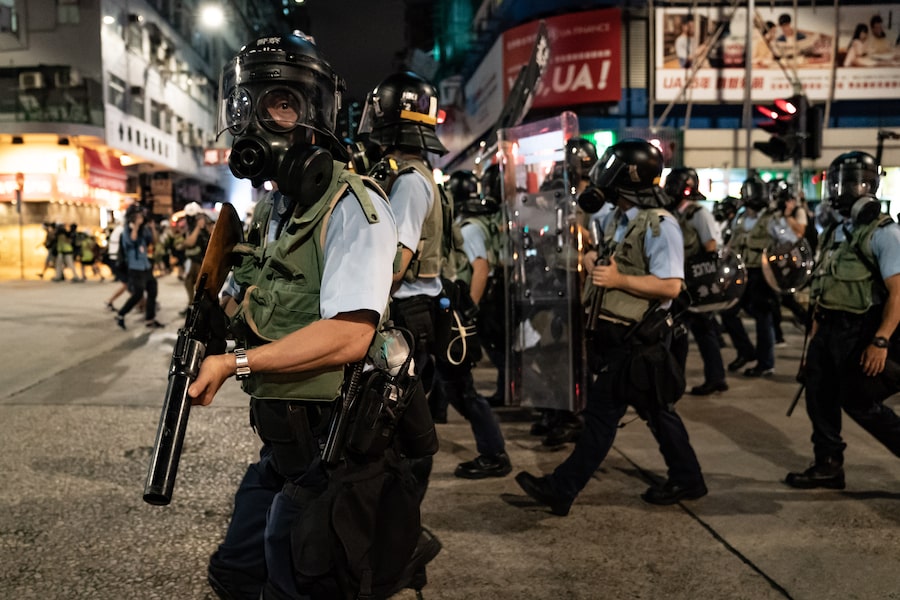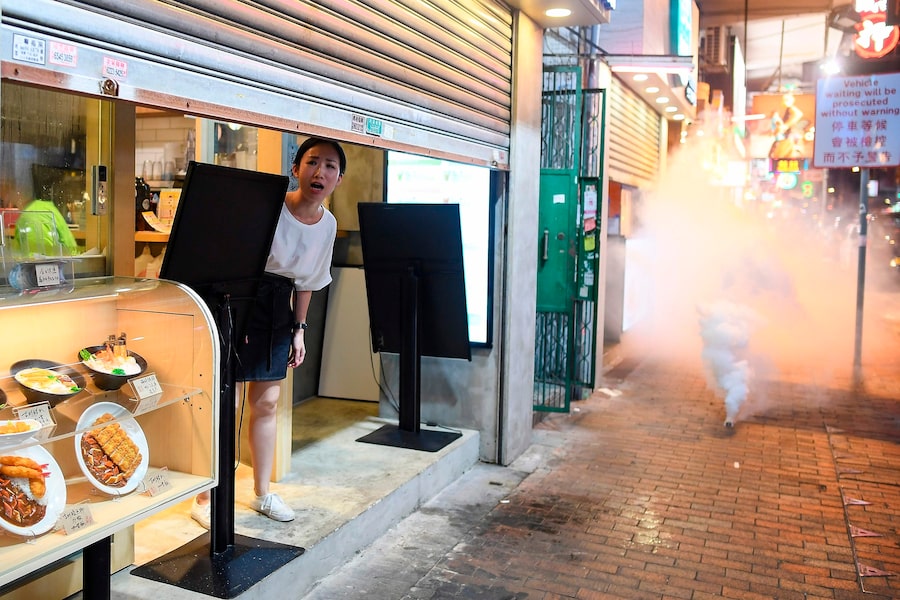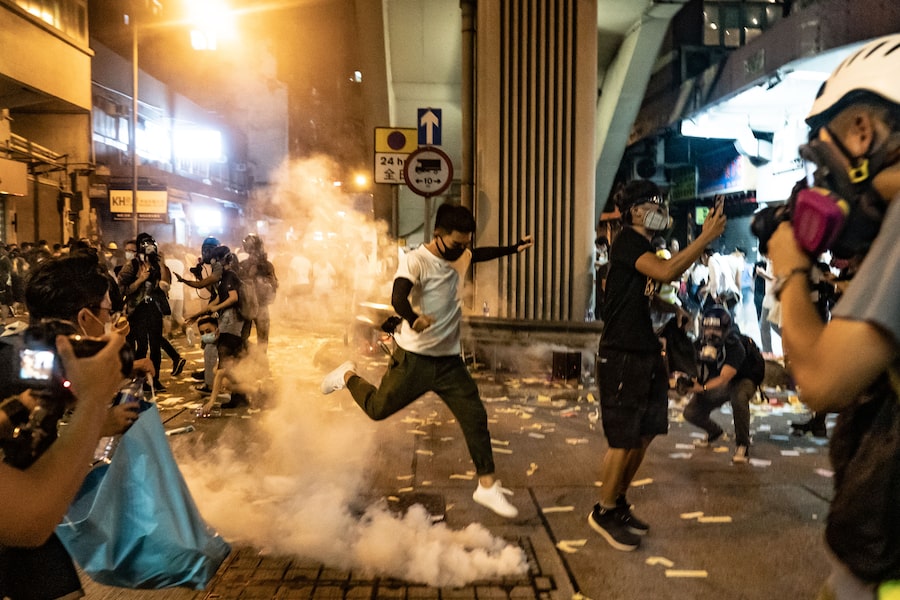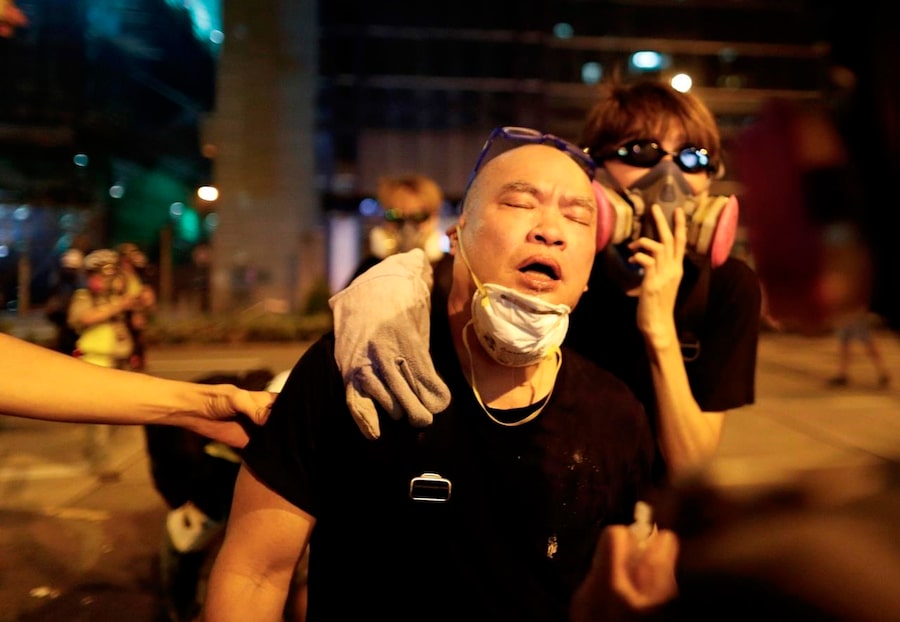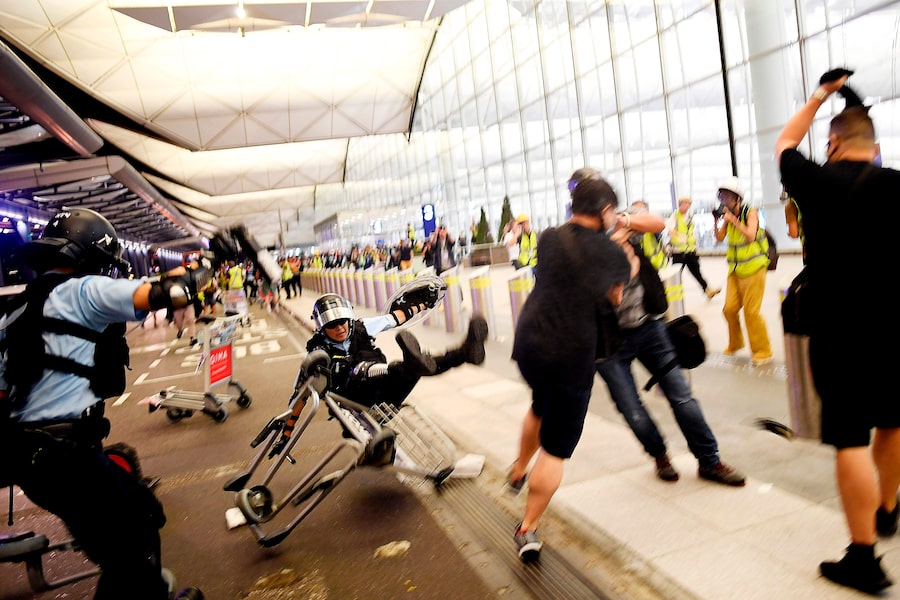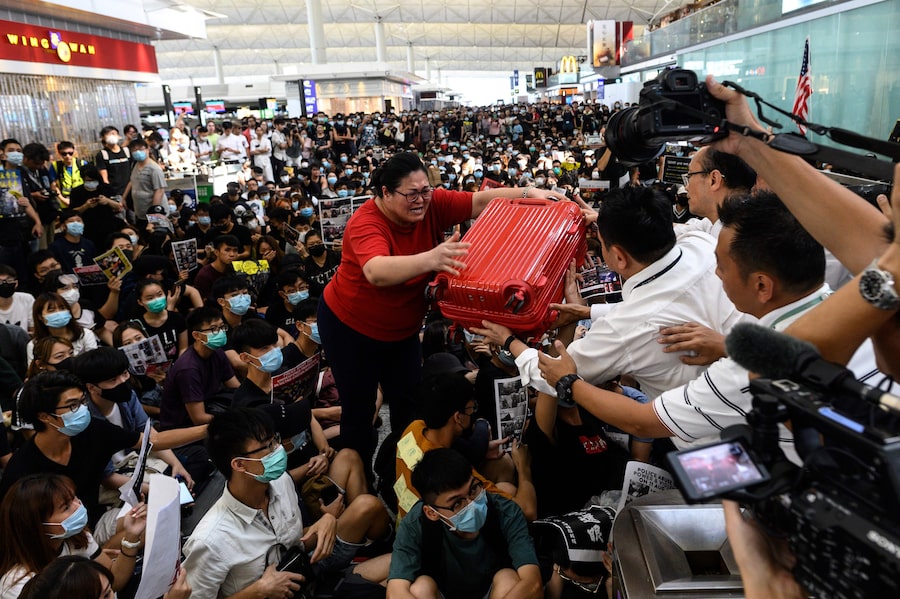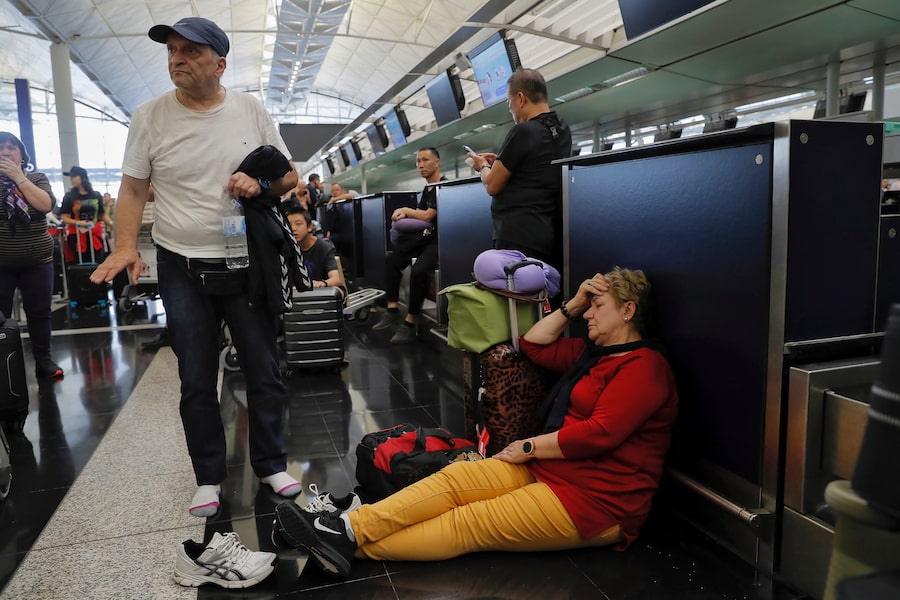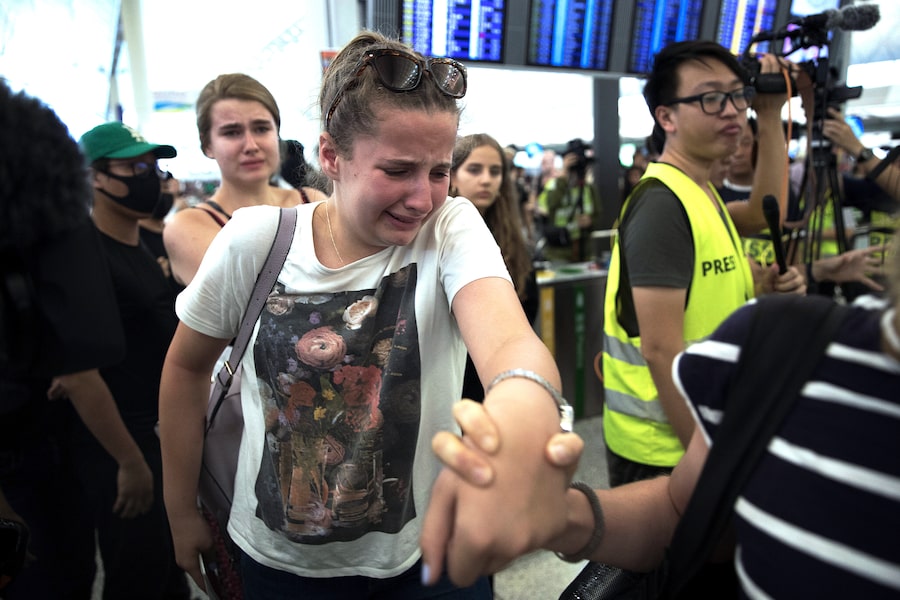
Protesters occupy the arrival hall of the Hong Kong International Airport during a demonstration on Aug. 12, 2019. Pro-democracy protesters have continued rallies on the streets of Hong Kong against a controversial extradition bill since June 9 as the city plunged into crisis after waves of demonstrations and several violent clashes. (Photo by Anthony Kwan/Getty Images)Anthony Kwan/Getty Images
Hong Kong’s airport reopened Tuesday, but its administrator warned that flight movements would still be affected, after China said widespread anti-government protests that halted flights a day earlier showed “sprouts of terrorism.”
The notice was published on the Hong Kong International Airport’s official mobile app at 6 a.m. local time. The airport, one of the world’s busiest, blamed demonstrators for halting flights on Monday.
“Hong Kong International Airport will implement flight rescheduling today with flight movements expected to be affected,” the notice said.
The precise trigger for the airport’s closure was not clear, since protesters occupying the arrivals hall for four days have been peaceful. Most of them had left shortly after midnight, but around 50 remained, discussing their next move.
A Reuters reporter saw more than 100 travellers queuing up at Cathay Pacific’s ticketing counter early on Tuesday.
Hong Kong’s airport halted flights Monday, blaming demonstrators for the disruption.
The airport authority said it was working with airlines to resume flights from 6 a.m. on Tuesday, but the developments raised the stakes sharply after a weekend of skirmishes during which both activists and police toughened their stances.
“This is about our freedom,” a 24-year-old protester wearing a mask, who gave his name only as Yu, told Reuters during the evening. “Why should we leave?”
Some Hong Kong legal experts say official descriptions of some protesters’ actions as terrorism could lead to the use of extensive anti-terror laws and powers against them.
China’s People’s Armed Police also assembled in the neighbouring city of Shenzhen for exercises, the state-backed Global Times newspaper said. The Communist Party’s official People’s Daily newspaper said on the Twitter-like Weibo that the force can handle incidents including riots or terrorist attacks.
Hong Kongers responded by taking to the streets again.
Crowds picketed a police station, singing hymns. Hundreds of people returned to a subway station, where police had hit activists with batons, to protest against heavy-handed tactics.
The increasingly violent demonstrations have plunged the Chinese-ruled territory into its most serious crisis in decades, presenting Chinese leader Xi Jinping with one of his biggest challenges since he came to power in 2012.
“Hong Kong has come to a critical juncture,” Hong Kong and Macau Affairs office spokesman Yang Guang said in Beijing. “Protesters have been frequently using extremely dangerous tools to attack the police in recent days, constituting serious crimes, with sprouts of terrorism emerging.”
The protests began in opposition to a bill allowing extraditions to the mainland for trial in Communist-controlled courts, but have widened to highlight other grievances, winning broad support.
Demonstrators say they are fighting the erosion of the “one country, two systems” arrangement that enshrined some autonomy for Hong Kong when China took it back from Britain in 1997.
Hong Kong is the world’s busiest air-cargo port and the eighth busiest by passenger traffic, handling 73 million passengers a year. The airport has been filled with anti-government protesters for four days.
The mostly young, black-clad protesters have chanted slogans such as “No rioters, only tyranny!” and “Liberate Hong Kong!” while approaching travellers with flyers describing their demands and explaining the unrest.
U.S. Senate Majority Leader Mitch McConnell said they were “bravely standing up to the Chinese Communist Party,” and that a violent crackdown would be completely unacceptable.
The activists at the airport have been polite and passengers mostly unperturbed. “I was expecting something, given all the news,” one arrival, Gurinda Singh, told Reuters. “I’m just pleased my plane arrived and the protests here seem peaceful.”
Some activists moved to the departure area and caused disruptions, police told a news conference as the cancellations were announced.
Earlier in the day, police declined to say if they would move to clear the demonstrators. There was no visible police presence in either the departure or arrivals area.
“Airport operations at Hong Kong International Airport have been seriously disrupted as a result of the public assembly at the airport today,” the city’s airport authority said in a statement, without elaborating.
About 190 flights were affected, Chinese aviation data firm VariFlight said, although planes already en route to Hong Kong were allowed to land.
Malaysia Airlines said it would be cancelling its flights between Malaysia and Hong Kong until Tuesday afternoon.
Demonstrators threw up barricades across Hong Kong during the weekend, as police fired tear gas into crowded underground train stations as well as rubber bullets and pepper pellets at close range.
In response, protesters have sought to channel a Bruce Lee maxim, “Be water,” employing a flash-mob strategy to frustrate authorities and stretch their resources.
Still, scores of protesters were arrested, sometimes after being beaten with batons and bloodied by police.
One young female medic was hospitalized after being hit by a pellet round in the right eye. Demonstrators were also angered by the use of undercover police, dressed as protesters.
Hundreds of people returned on Monday to the scene of some of the clashes to protest against the use of force.
China has used the threat of terrorism to justify tough measures in its regions of Xinjiang and Tibet, which have been criticized by rights groups and Western governments. The country warned them off on Monday as well.
“Hong Kong is China’s Hong Kong and Hong Kong affairs are purely China’s internal affairs,” Foreign Ministry spokeswoman Hua Chunying said in a statement.
China has also put pressure on big companies such as Cathay Pacific Airways, whose shares tumbled to a 10-year low Monday after it was told to suspend staff engaged in illegal protests.
Our Morning Update and Evening Update newsletters are written by Globe editors, giving you a concise summary of the day’s most important headlines. Sign up today.
